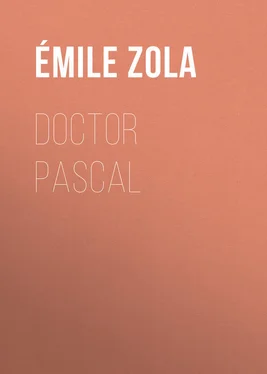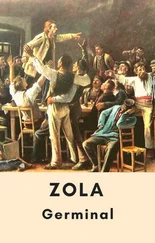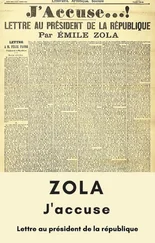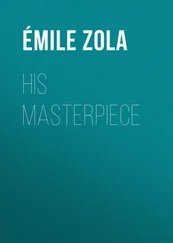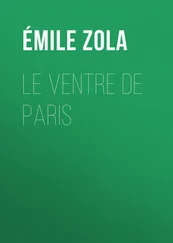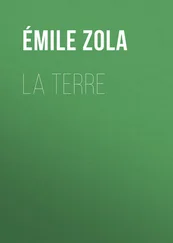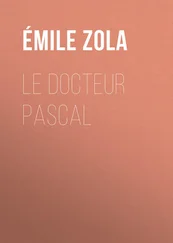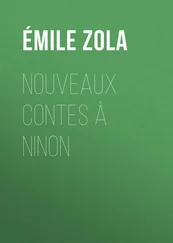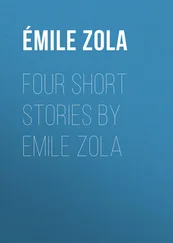Émile Zola - Doctor Pascal
Здесь есть возможность читать онлайн «Émile Zola - Doctor Pascal» — ознакомительный отрывок электронной книги совершенно бесплатно, а после прочтения отрывка купить полную версию. В некоторых случаях можно слушать аудио, скачать через торрент в формате fb2 и присутствует краткое содержание. Жанр: literature_19, foreign_antique, foreign_prose, на английском языке. Описание произведения, (предисловие) а так же отзывы посетителей доступны на портале библиотеки ЛибКат.
- Название:Doctor Pascal
- Автор:
- Жанр:
- Год:неизвестен
- ISBN:нет данных
- Рейтинг книги:4 / 5. Голосов: 1
-
Избранное:Добавить в избранное
- Отзывы:
-
Ваша оценка:
- 80
- 1
- 2
- 3
- 4
- 5
Doctor Pascal: краткое содержание, описание и аннотация
Предлагаем к чтению аннотацию, описание, краткое содержание или предисловие (зависит от того, что написал сам автор книги «Doctor Pascal»). Если вы не нашли необходимую информацию о книге — напишите в комментариях, мы постараемся отыскать её.
Doctor Pascal — читать онлайн ознакомительный отрывок
Ниже представлен текст книги, разбитый по страницам. Система сохранения места последней прочитанной страницы, позволяет с удобством читать онлайн бесплатно книгу «Doctor Pascal», без необходимости каждый раз заново искать на чём Вы остановились. Поставьте закладку, и сможете в любой момент перейти на страницу, на которой закончили чтение.
Интервал:
Закладка:
Émile Zola
Doctor Pascal
I
In the heat of the glowing July afternoon, the room, with blinds carefully closed, was full of a great calm. From the three windows, through the cracks of the old wooden shutters, came only a few scattered sunbeams which, in the midst of the obscurity, made a soft brightness that bathed surrounding objects in a diffused and tender light. It was cool here in comparison with the overpowering heat that was felt outside, under the fierce rays of the sun that blazed upon the front of the house.
Standing before the press which faced the windows, Dr. Pascal was looking for a paper that he had come in search of. With doors wide open, this immense press of carved oak, adorned with strong and handsome mountings of metal, dating from the last century, displayed within its capacious depths an extraordinary collection of papers and manuscripts of all sorts, piled up in confusion and filling every shelf to overflowing. For more than thirty years the doctor had thrown into it every page he wrote, from brief notes to the complete texts of his great works on heredity. Thus it was that his searches here were not always easy. He rummaged patiently among the papers, and when he at last found the one he was looking for, he smiled.
For an instant longer he remained near the bookcase, reading the note by a golden sunbeam that came to him from the middle window. He himself, in this dawnlike light, appeared, with his snow-white hair and beard, strong and vigorous; although he was near sixty, his color was so fresh, his features were so finely cut, his eyes were still so clear, and he had so youthful an air that one might have taken him, in his close-fitting, maroon velvet jacket, for a young man with powdered hair.
“Here, Clotilde,” he said at last, “you will copy this note. Ramond would never be able to decipher my diabolical writing.”
And he crossed the room and laid the paper beside the young girl, who stood working at a high desk in the embrasure of the window to the right.
“Very well, master,” she answered.
She did not even turn round, so engrossed was her attention with the pastel which she was at the moment rapidly sketching in with broad strokes of the crayon. Near her in a vase bloomed a stalk of hollyhocks of a singular shade of violet, striped with yellow. But the profile of her small round head, with its short, fair hair, was clearly distinguishable; an exquisite and serious profile, the straight forehead contracted in a frown of attention, the eyes of an azure blue, the nose delicately molded, the chin firm. Her bent neck, especially, of a milky whiteness, looked adorably youthful under the gold of the clustering curls. In her long black blouse she seemed very tall, with her slight figure, slender throat, and flexible form, the flexible slenderness of the divine figures of the Renaissance. In spite of her twenty-five years, she still retained a childlike air and looked hardly eighteen.
“And,” resumed the doctor, “you will arrange the press a little. Nothing can be found there any longer.”
“Very well, master,” she repeated, without raising her head; “presently.”
Pascal had turned round to seat himself at his desk, at the other end of the room, before the window to the left. It was a plain black wooden table, and was littered also with papers and pamphlets of all sorts. And silence again reigned in the peaceful semi-obscurity, contrasting with the overpowering glare outside. The vast apartment, a dozen meters long and six wide, had, in addition to the press, only two bookcases, filled with books. Antique chairs of various kinds stood around in disorder, while for sole adornment, along the walls, hung with an old salon Empire paper of a rose pattern, were nailed pastels of flowers of strange coloring dimly visible. The woodwork of three folding-doors, the door opening on the hall and two others at opposite ends of the apartment, the one leading to the doctor’s room, the other to that of the young girl, as well as the cornice of the smoke-darkened ceiling, dated from the time of Louis XV.
An hour passed without a sound, without a breath. Then Pascal, who, as a diversion from his work, had opened a newspaper — Le Temps – which had lain forgotten on the table, uttered a slight exclamation:
“Why! your father has been appointed editor of the Epoque , the prosperous republican journal which has the publishing of the papers of the Tuileries.”
This news must have been unexpected by him, for he laughed frankly, at once pleased and saddened, and in an undertone he continued:
“My word! If things had been invented, they could not have been finer. Life is a strange thing. This is a very interesting article.”
Clotilde made no answer, as if her thoughts were a hundred leagues away from what her uncle was saying. And he did not speak again, but taking his scissors after he had read the article, he cut it out and pasted it on a sheet of paper, on which he made some marginal notes in his large, irregular handwriting. Then he went back to the press to classify this new document in it. But he was obliged to take a chair, the shelf being so high that he could not reach it notwithstanding his tall stature.
On this high shelf a whole series of enormous bundles of papers were arranged in order, methodically classified. Here were papers of all sorts: sheets of manuscript, documents on stamped paper, articles cut out of newspapers, arranged in envelopes of strong blue paper, each of which bore on the outside a name written in large characters. One felt that these documents were tenderly kept in view, taken out continually, and carefully replaced; for of the whole press, this corner was the only one kept in order.
When Pascal, mounted on the chair, had found the package he was looking for, one of the bulkiest of the envelopes, on which was written the name “Saccard,” he added to it the new document, and then replaced the whole under its corresponding alphabetical letter. A moment later he had forgotten the subject, and was complacently straightening a pile of papers that were falling down. And when he at last jumped down off the chair, he said:
“When you are arranging the press, Clotilde, don’t touch the packages at the top; do you hear?”
“Very well, master,” she responded, for the third time, docilely.
He laughed again, with the gaiety that was natural to him.
“That is forbidden.”
“I know it, master.”
And he closed the press with a vigorous turn of the key, which he then threw into a drawer of his writing table. The young girl was sufficiently acquainted with his researches to keep his manuscripts in some degree of order; and he gladly employed her as his secretary; he made her copy his notes when some confrere and friend, like Dr. Ramond asked him to send him some document. But she was not a savante ; he simply forbade her to read what he deemed it useless that she should know.
At last, perceiving her so completely absorbed in her work, his attention was aroused.
“What is the matter with you, that you don’t open your lips?” he said. “Are you so taken up with the copying of those flowers that you can’t speak?”
This was another of the labors which he often intrusted to her – to make drawings, aquarelles, and pastels, which he afterward used in his works as plates. Thus, for the past five years he had been making some curious experiments on a collection of hollyhocks; he had obtained a whole series of new colorings by artificial fecundations. She made these sorts of copies with extraordinary minuteness, an exactitude of design and of coloring so extreme that he marveled unceasingly at the conscientiousness of her work, and he often told her that she had a “good, round, strong, clear little headpiece.”
Читать дальшеИнтервал:
Закладка:
Похожие книги на «Doctor Pascal»
Представляем Вашему вниманию похожие книги на «Doctor Pascal» списком для выбора. Мы отобрали схожую по названию и смыслу литературу в надежде предоставить читателям больше вариантов отыскать новые, интересные, ещё непрочитанные произведения.
Обсуждение, отзывы о книге «Doctor Pascal» и просто собственные мнения читателей. Оставьте ваши комментарии, напишите, что Вы думаете о произведении, его смысле или главных героях. Укажите что конкретно понравилось, а что нет, и почему Вы так считаете.
